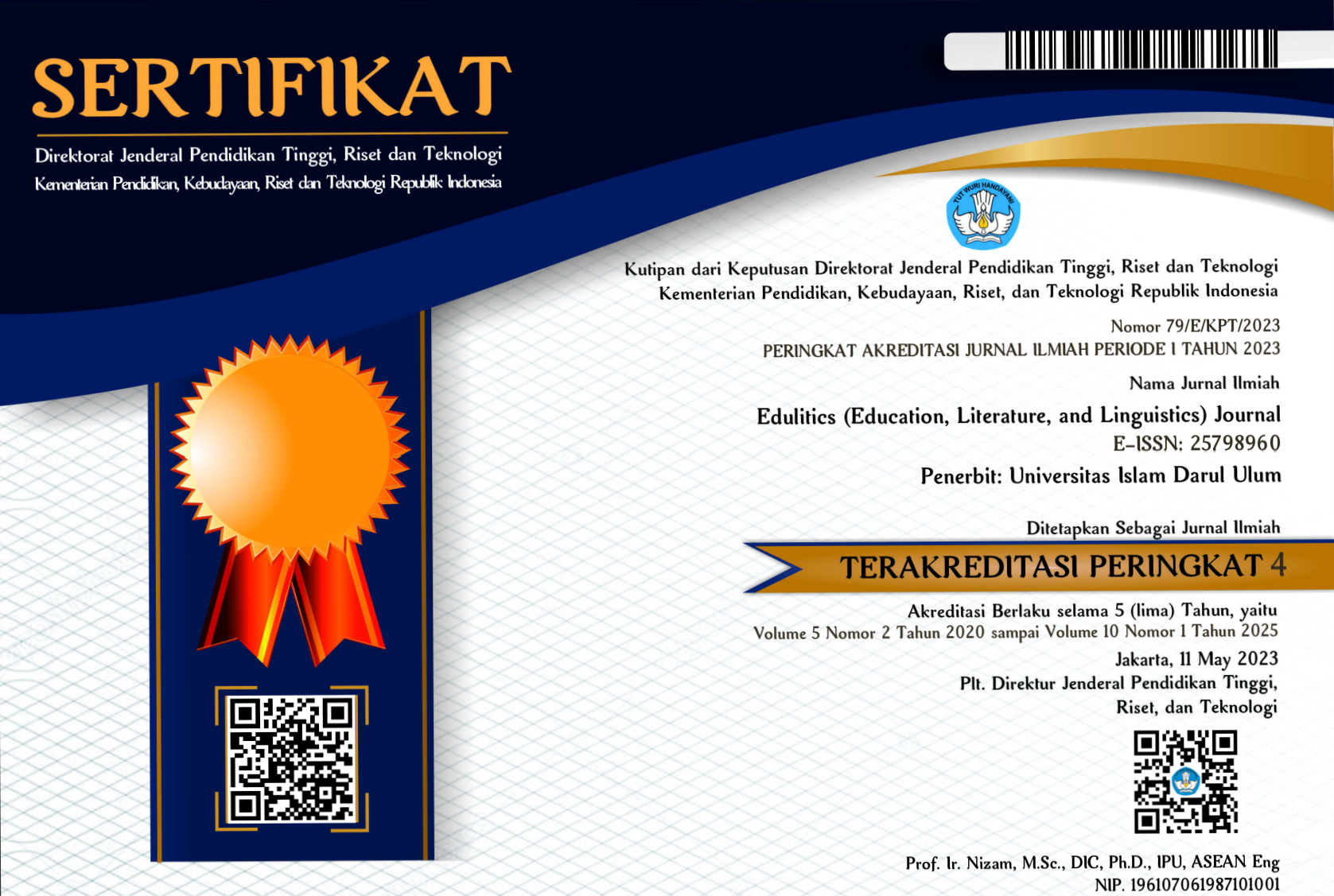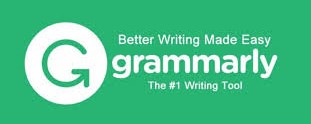Authentic Assessment through Analytic Teams Technique in Empowering Students’ Speaking Skills
Abstract
Learning in higher education is fundamentally an activity which is conducted in a planned and structured manner to create an environment and provide services that enable students to learn effectively. The major duty of lecturers is to organize and implement learning, as well as conduct an assessment of each content that has been taught. For that reason, this research is trying to investigate: (1) authentic assessments through analytic team technique implemented in English learning and teaching, (2) the types of authentic assessment used, (3) the teachers’ perception of the implementation of authentic assessment through analytic teams technique in empowering students’ speaking skills. This study applied qualitative design to apprehend the implementation of authentic assessment through analytic teams technique. Observation, interview, and documentation were conducted to get the data. The results showed that the authentic assessment through the analytic team's technique applied in the English lecturer class of Universitas Bhayangkara Jakarta Raya at the Communication Science Department is level good. Both lectures implemented authentic assessments through analytic team technique in the learning and teaching process. The types of authentic assessments were performance assessment, observation and question, presentation and discussion, experiments, storytelling, and self-assessment. Furthermore, the lecturers’ perception of the implementation of authentic assessment through the analytic teams technique can empower students’ speaking skills. This research implies that educators can enhance students’ speaking skills using authentic assessments through the analytic teams technique to better outcomes in students' speaking skills, and to take ownership of their learning.
Downloads
References
Barkley, E. F., & et al. (2005). Collaborative Learning Technique. Jossey-Bass, Inc.
Crisianita, S., & Mandasari, B. (2022). The use of small-group discussion to improve students’ speaking skill. Journal of
Research on Language Education (JoRLE), 3(1), 61–66.
Daulay S, H., Siregar, D. Y., & Sulistia, N. (2023). Hello English application to improve the students’ speaking skills. Edulitics Journal, 8(2), 21–28.
Flood, J. et al. (2005). Methods of Research on Teaching the English Language Arts. Lawrence Erlbaum Associates.
Hartatik, S. (2013). The Effectiveness of Analytic Teams Technique to Teach Reading Viewed from Students Intelligence [Thesis]. Universitas Sebelas Maret Surakarta.
Leong, L.-M., & Ahmadi, S. M. (2017). An analysis of factors influencing learners’ English speaking skill. International Journal of Research in English Education, 2(1), 34–41. https://doi.org/10.18869/acadpub.ijree.2.1.34
Mardapi, D. (2017). Pengukuran, Penilaian, dan Evaluasi Pendidikan. Parama Publishing.
Martika, S. E., & Zaim, M. (2021). The implementation of authentic assessment on reading comprehension of the tenth grade students of SMAN 8 Padang. Journal of English Language Teaching, 10(1), 129–137. https://doi.org/10.24036/jelt.v10i1.111679
Mursyida, I. T., Faridi, A., & Suwandi. (2020). English teachers’ perception and implementation of authentic assessment for speaking based on 2013 curriculum. English Education Journal, 10(3), 273–281.
O’Malley, M. J. , & P. L. V. (1996). Authentic Assessment for English Language Learners: Practical Approaches for Teachers. Addison-Wesley Publishing Company.
Parmawati, A. (2018). Using analytic teams technique to improve students’ speaking skill. Edulitics Journal, 3(2), 21–25.
Pearce, S. (2016). Authentic learning: what, why and how? E-Teaching, 10, 1–3.
Pratiwi, Z. F., & Ayu, M. (2020). The use of describing picture strategy to improve secondary students’ speaking skill. Journal of English Language Teaching and Learning (JELTL), 1(2), 38–43.
Rao, P. S. (2019). The importance of speaking skills in English classrooms. Alford Council of International English & Literature Journal(ACIELJ), 2(2), 6–18.
Ridwan, Wahyuningsih, S., & Winarno. (2021). Authentic assessment in English textbook “stop bullying now” used for the eleventh grade students of Senior High School. Journal of English Teaching Adi Buana, 06(02), 191–207. https://doi.org/https://doi.org/10.36456/jet.v6.n02.2021.4504
Rochmiyati, S., & Rufaidah, D. (2017). Pengaruh teknik analytic teams terhadap kemampuan menganalisis film. Wacana Akademika, 1(2), 143–150.
Sekarsari, A. A., Muamaroh, & Hikmat, M. H. (2023). Authentic assessment of speaking skills in Junior High School. IDEAS: Journal on English Language Teaching and Learning, Linguistics and Literature, 11(1), 630–637. https://doi.org/10.24256/ideas.v11i1.3854
Zahro, S. K. (2021). Unintelligible Speech: Listeners' Awareness to Indonesian-Accented Speech with Pronunciation Errors. Language Literacy: Journal of Linguistics, Literature and Language Teaching, 5(1).
Zaim, M., Refnaldi, & Arsyad, S. (2020). Authentic assessment for speaking skills: Problem and solution for english secondary school teachers in Indonesia. International Journal of Instruction, 13(3), 587–604. https://doi.org/10.29333/iji.2020.13340a
Zuhriyah, M. (2017). Storytelling to improve students’ speaking skill. English Education: Jurnal Tadris Bahasa Inggris, 10(1), 119–134.

This work is licensed under a Creative Commons Attribution-ShareAlike 4.0 International License.
Authors retain copyright and grant the journal the right of first publication with the work simultaneously licensed under a Creative Commons Attribution-ShareAlike 4.0 International License that allows others to share the work with an acknowledgment of the work's authorship and initial publication in this journal.
Authors are able to enter into separate, additional contractual arrangements for the non-exclusive distribution of the journal's published version of the work (e.g., post it to an institutional repository or publish it in a book), with an acknowledgment of its initial publication in this journal.
Authors are permitted and encouraged to post their work online (e.g., in institutional repositories or on their website) before and during the submission process, as it can lead to productive exchanges and earlier and greater citation of published work.







_(1).png)


